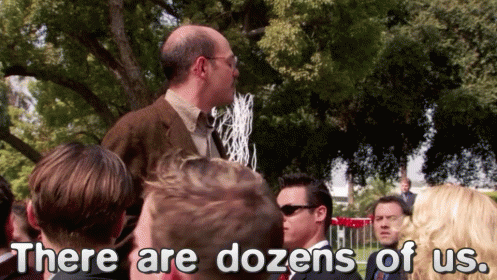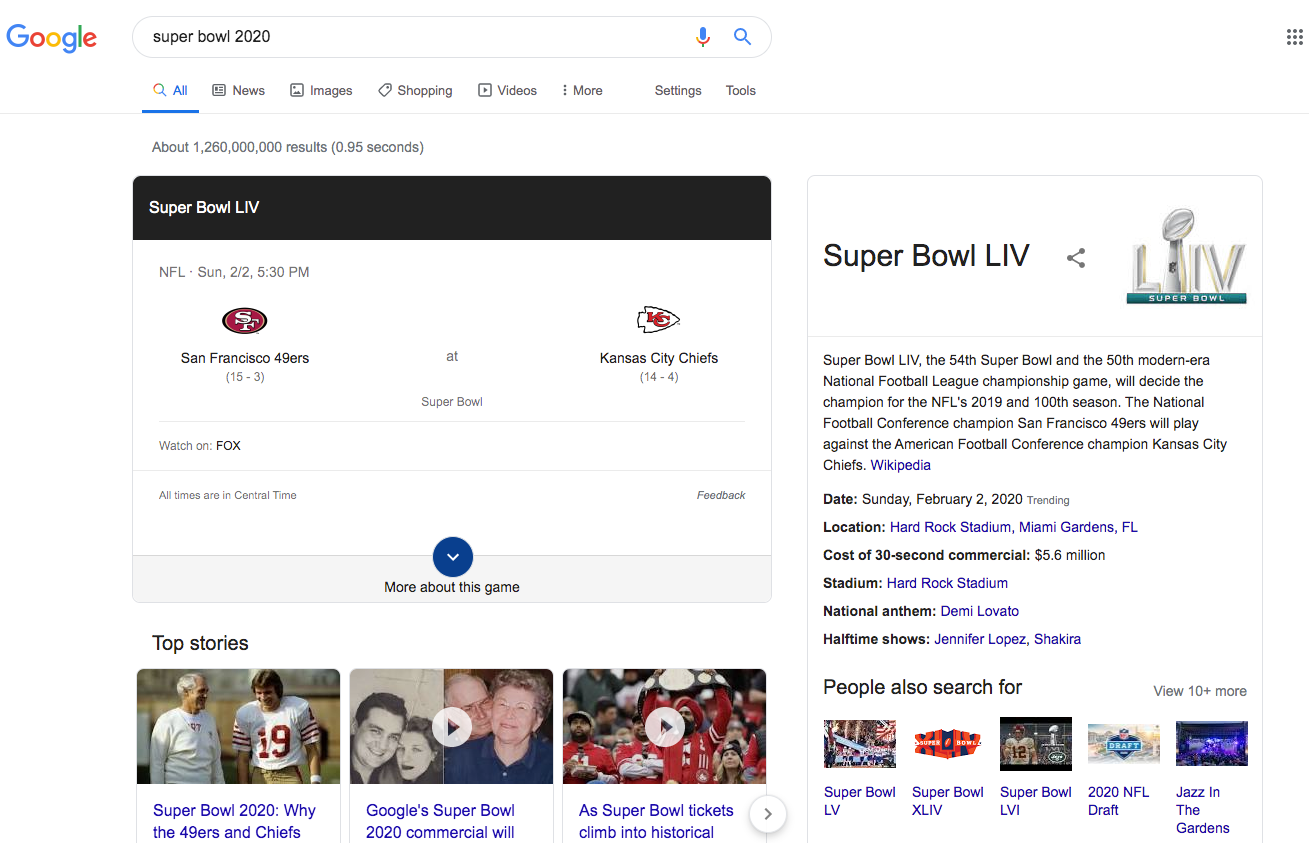Somehow, some way, out of 70-some-odd people, our Brand Team found the least sports-oriented person in the agency to write a piece on the Super Bowl. So, I’ll avoid making predictions about who’s winning the conference championships, breaking down highlights from last year’s game in an effort to prove that I know the difference between a point after and a punt return, or generally try to put forward any opinion on the sport that I didn’t glean from a quick Google search. But that brings me, very conveniently, to what I do have longstanding opinions about: Google’s search engine results pages (SERP).
I’ve worked in search marketing for the better part of a decade, and it’s been pretty cool to see Google’s SERP transform over the years into a Frankenstein’s monster of information — well, “cool” to the few of us that would admit publicly that we’re really, really into search.

While the reason for using Google search has stayed the same year after year, how exactly we ask the questions and what the answers look like have changed quite a bit. In 2020, it’s estimated that half of all internet searches will be done using voice search, making it easier than ever to ask all our questions. And the answers? More and more these days, we don’t even have to click to a website to get what we’re looking for, thanks, in large part, to Google’s Knowledge Graph.
Knowledge Graph
In 2012, Google introduced, in my opinion, one of the most subtly influential applications of search results evolution to date: the Knowledge Graph. In short, Google understood the value they could provide users by doing the heavy lifting of sifting through the links you’d normally click on from a SERP and serving up well-curated answers on a silver platter. So, what does that look like on your SERP? Google automatically pulls information from various internet sources and puts it in a neatly organized, easy-to-read box right at the top of the results page.

Now, I can quickly glean the backstory to the Black Key’s tribute album, Chulahoma. Now, I can also tell you in just two short searches with no clicks to a single website that if you take I-80, Bill Murray was born 3 hours and 33 minutes away from where I was. And now I can tell you, just based on information I found on a Knowledge Graph about 30 minutes ago, that this year’s Super Bowl is the 54th such event; it’s happening on Sunday, February 2nd in Miami Gardens, FL; and Jennifer Lopez and Shakira are teaming up for the halftime show. Roughly three days from this writing, I’ll also be able to tell you, at a glance, who’s actually playing, at what time and on what channel I can watch the game. You know, in case you’re actually searching about the Super Bowl for the football part. (Oh, and you can easily find that the cost of the holy grail of TV ads, the coveted Super Bowl 30-second spot, hit an all-time high of $5.6 million this year.)
But this search feature is not without its drawbacks and dramatizations. The judgement on changes to Google’s Knowledge Graph ranges from the dystopian to the prophetic. A creeping impact to organic and paid search is starting to unfold in a detrimental way to both sides of the coin as no-click searches are on the rise. In other words, people simply find what they need without clicking to a site. This time ten years ago, I’d imagine major sports websites saw a surge of traffic as people scoured the internet to read up on the Super Bowl to make sure they could wager wisely or speak smartly around the work water cooler. Today, probably not as much. Even back in 2015, 20% of SERPs included Knowledge Graph features. When Google rolled out the Knowledge Graph, Wikipedia page views dropped by over 20%.
But things are always changing. As much as Google’s giving you straight answers and taking away from that sweet, sweet organic traffic, they’re also linking searchers off to new and exciting places so we can find great, in-depth content that they simply can’t summarize. It’s all an effort to deliver highly personalized results, the experience every user wants.
As it relates to your own brand, be sure to check out what Knowledge Graph information pulls up when you do some common branded searches. While you can’t explicitly tell Google what to include, you can suggest edits and try to correct things like hours and contact information to improve that user experience.
And for the Super Bowl? I’d encourage you to really take a stroll through Google’s SERP as you read up on this year’s NFL event. You never know, you could find something today that one-ups what Gary from accounting found yesterday. Own the Super Bowl this year. Dig into Google’s Knowledge Graph.





